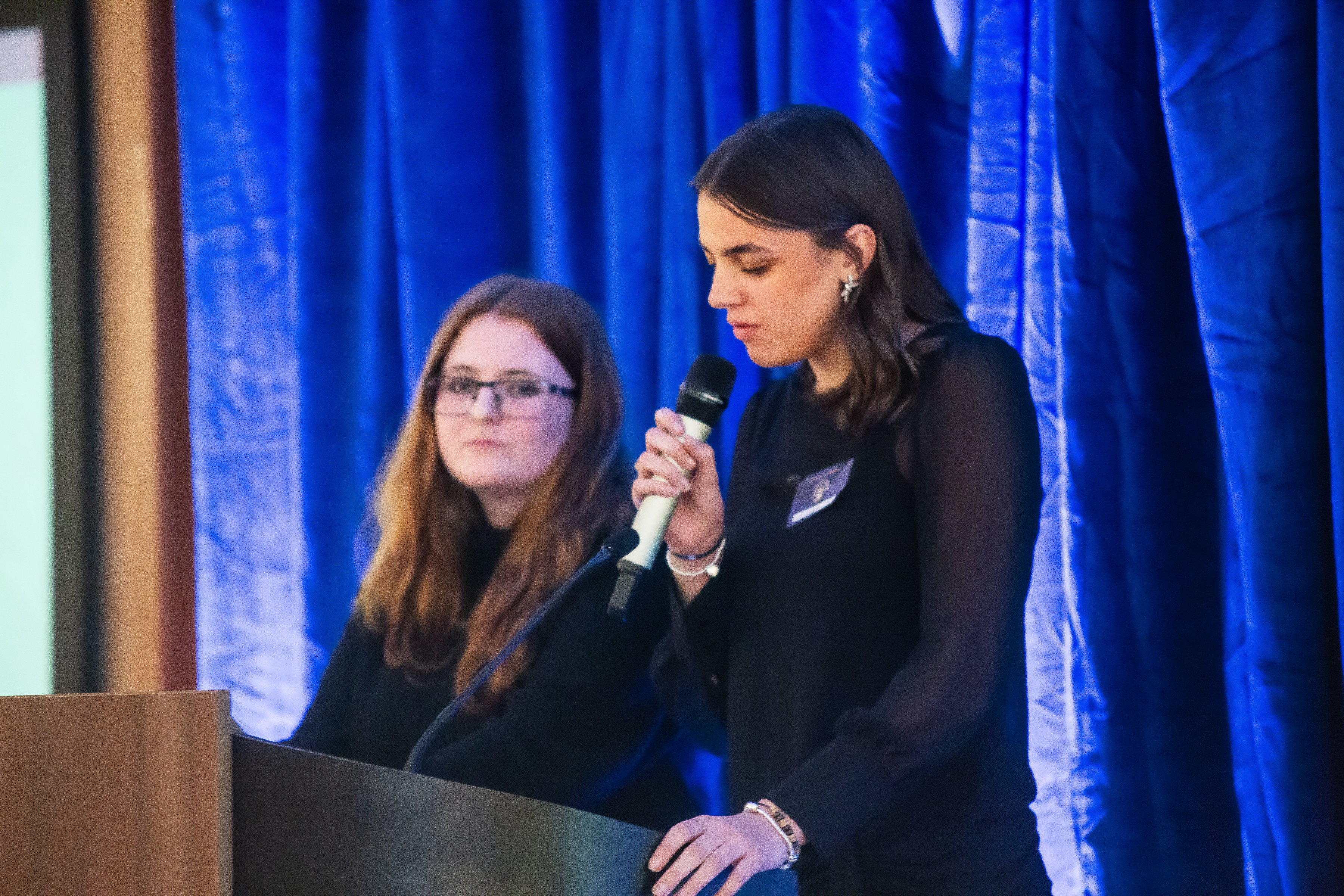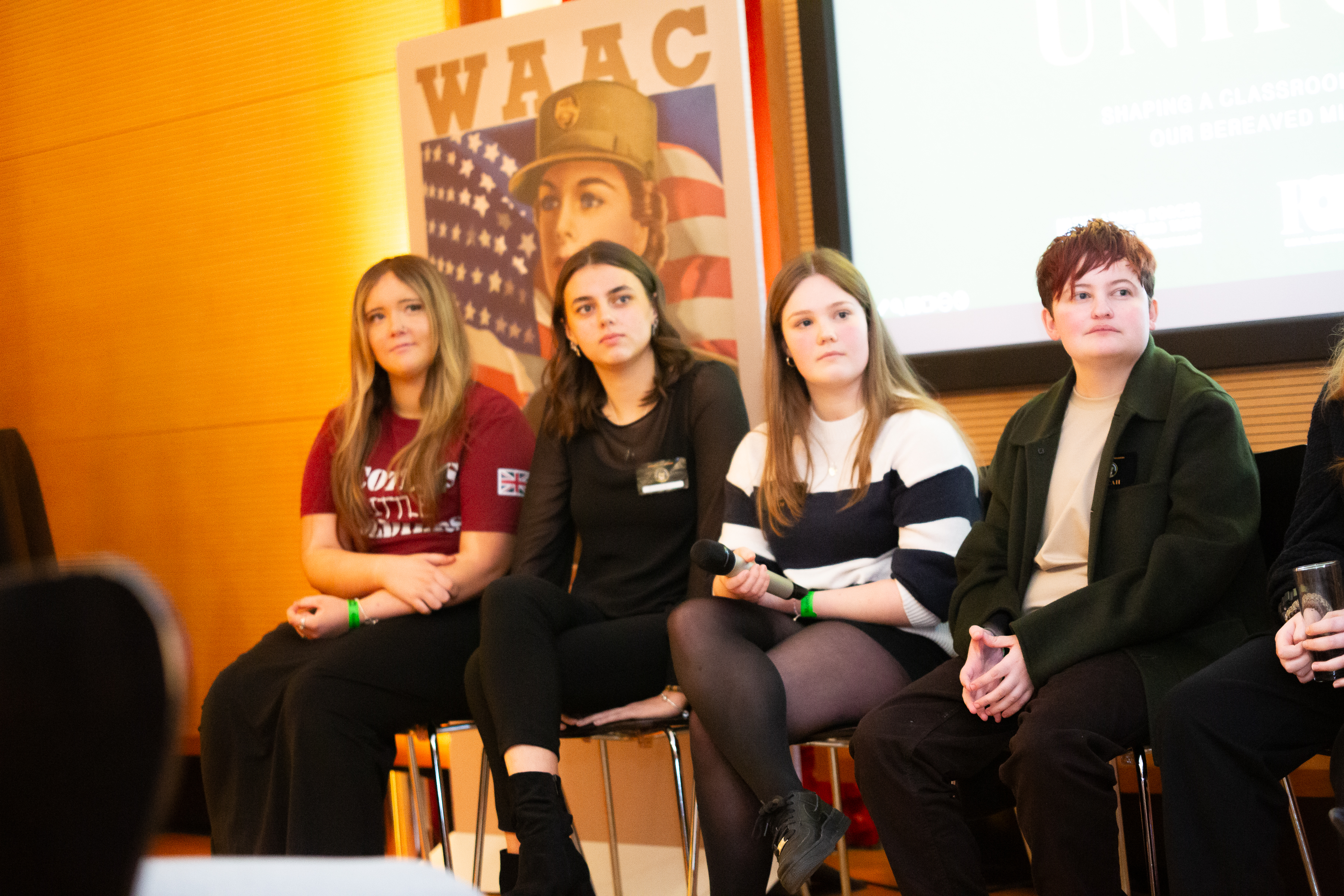War poetry to physics explosions: Bereaved military children want different school experience
"I could feel everyone staring at me, because everyone in that class knew how my dad had died," explained 16-year-old Brooke Scott to a room full of politicians, representatives from charities and government, and others like her who have lost a parent in the Armed Forces.
Recalling a war poetry lesson in GCSE English, she described how a video depicting the war in Afghanistan was shown, despite her father's death in conflict.
Corporal Lee Scott was serving in the 2nd Royal Tank Regiment in 2009 when he was killed in action, and now his daughter is part of a team of children campaigning for change to the education system.
Scotty's Little Soldiers, supporting children who've lost an Armed Forces parent, have launched research alongside the Royal British Legion, suggesting more than half had faced multiple instances of potentially traumatic content in lessons.
The report surveyed 190 families who have drawn on the support of Scotty's, and showed that 77% of bereaved children and young people encountered lessons that directly related to the cause of their parent’s death or explicitly reminded them of their bereavement.
One child said: “In physics, we had to learn the effects that different bombs had on people. When I asked to leave, I wasn't allowed because I might have a question about it in the GCSE.
"My dad was killed by a bomb in Afghanistan."
The research, launched in The Churchill War Rooms in London, suggests that fewer than a third felt schools had handled upsetting curriculum content in a supportive of sensitive manner.

Speaking to BFBS Forces News, founder Nikki Scott outlined the changes SLS is looking for.
"We're not asking for loads, it's not going to cost loads of money. What it's about is putting some training in. Teacher training," she said.
"A lot of it is about pre-warning, so knowing you've got a bereaved child in your classroom and giving them a heads up.
"You could have a pass to leave the classroom, or maybe there's a different exam subject they could take."
The group is determined to work with schools rather than to take aim at the current state of content delivery, and its recommendation for safe spaces and alternative questions on exam papers are caveated with ‘where possible’ and ‘where appropriate’ to ensure equitable attainment.
Children at the London event spoke of their avoidance of certain subjects, in some cases faced with “anthologies” of writings that would have the potential to cause distress – and findings suggest both students and teachers felt pressure to proceed with challenging exam content owing to concerns with missing top marks.

Tuscany was 13 when her dad, Leading Marine Engineering Mechanic Paul Crowther, died by suicide in May 2020.
"I was given half marks on a paper where I was asked to write about an experience where I couldn't really explain my feelings, so I wrote about my journey of grief.
"My teacher said to me, 'Maybe don't write about your personal experiences because the exam board isn't as understanding as, perhaps, my teachers – because they're aware of my story."
Certain causes of death felt by the families behind the campaign are not exclusive to the military community, such as cancer, and Scotty's is open to working with other charities and organisations to push through change.
The charity wants the Department for Education (DfE) to create a statutory requirement for all schools to have and publish a bereavement policy.
BFBS Forces News has approached the DfE for comment.









